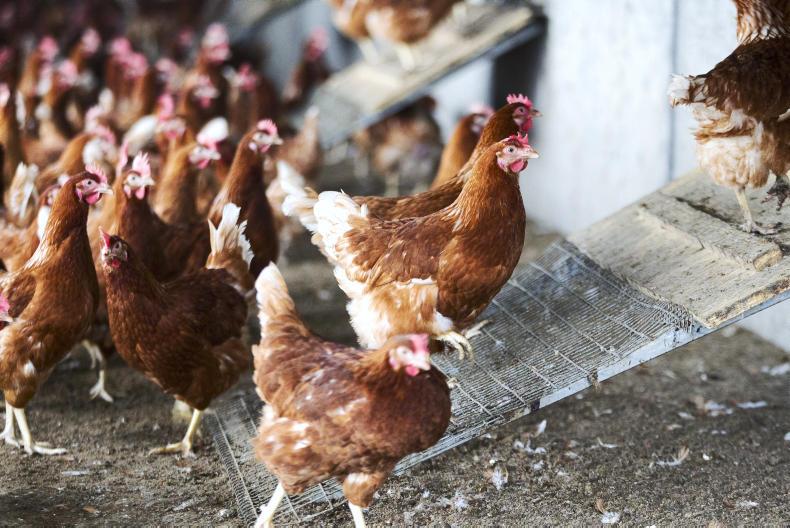On 28 October 2016, Hungary reported the detection of the highly infectious H5N8 virus in a wild bird that had been found dead at Lake Fehér-to in the country. Since then, there has been a total of 299 outbreaks confirmed in poultry in 10 member states (see table below).
Four member states (Germany, France, The Netherlands and Finland) have reported outbreaks in other captive birds and these have occurred mainly in zoos and wildlife parks.
There have been no further cases of bird flu identified in the UK since the most recent cases confirmed in England and Scotland.
Greece is the latest country to report an outbreak, having discovered their first case of the H5N8 virus in a wild bird on 23 December.
Number of H5N8 confirmed outbreaks in member states in poultry between from 1 October 2016 to 23 December 2016

Legislation
Following confirmation of the UK cases, the Irish Government began preparing legislation to coerce poultry farmers to house birds as the threat of bird flu intensified. The legislation was signed into force last Friday morning. This is the first time Ireland has taken this preventative measure. The regulations will be in place until further notice and will be reviewed 30 days from the date of introduction (23 December).
Speaking to the Irish Farmers Journal, IFA poultry chair Nigel Renaghan said he welcomed the legislation.
“I have been saying publicly for a while now that it is the best interests of the sector to house birds to prevent the spread of this deadly disease to our shores,” he said.
Bird flu in Ireland
While deadly to birds, the H5N8 strain of bird flu poses a low health risk to humans. There has been no case of H5N8 detected in Ireland in either wild birds or poultry flocks to date.
The Department of Agriculture has advised that if poultry farmers or other bird owners have any concerns regarding the health of their birds they should consult their veterinary practitioner immediately for advice. Alternatively, they should contact their nearest Department of Agriculture, Food and the Marine regional veterinary office or call the Avian Influenza Hotline on 076-106 4403.
More information can be found on the Department's website here.
Read more
Full coverage: bird flu
On 28 October 2016, Hungary reported the detection of the highly infectious H5N8 virus in a wild bird that had been found dead at Lake Fehér-to in the country. Since then, there has been a total of 299 outbreaks confirmed in poultry in 10 member states (see table below).
Four member states (Germany, France, The Netherlands and Finland) have reported outbreaks in other captive birds and these have occurred mainly in zoos and wildlife parks.
There have been no further cases of bird flu identified in the UK since the most recent cases confirmed in England and Scotland.
Greece is the latest country to report an outbreak, having discovered their first case of the H5N8 virus in a wild bird on 23 December.
Number of H5N8 confirmed outbreaks in member states in poultry between from 1 October 2016 to 23 December 2016

Legislation
Following confirmation of the UK cases, the Irish Government began preparing legislation to coerce poultry farmers to house birds as the threat of bird flu intensified. The legislation was signed into force last Friday morning. This is the first time Ireland has taken this preventative measure. The regulations will be in place until further notice and will be reviewed 30 days from the date of introduction (23 December).
Speaking to the Irish Farmers Journal, IFA poultry chair Nigel Renaghan said he welcomed the legislation.
“I have been saying publicly for a while now that it is the best interests of the sector to house birds to prevent the spread of this deadly disease to our shores,” he said.
Bird flu in Ireland
While deadly to birds, the H5N8 strain of bird flu poses a low health risk to humans. There has been no case of H5N8 detected in Ireland in either wild birds or poultry flocks to date.
The Department of Agriculture has advised that if poultry farmers or other bird owners have any concerns regarding the health of their birds they should consult their veterinary practitioner immediately for advice. Alternatively, they should contact their nearest Department of Agriculture, Food and the Marine regional veterinary office or call the Avian Influenza Hotline on 076-106 4403.
More information can be found on the Department's website here.
Read more
Full coverage: bird flu







 This is a subscriber-only article
This is a subscriber-only article












SHARING OPTIONS: